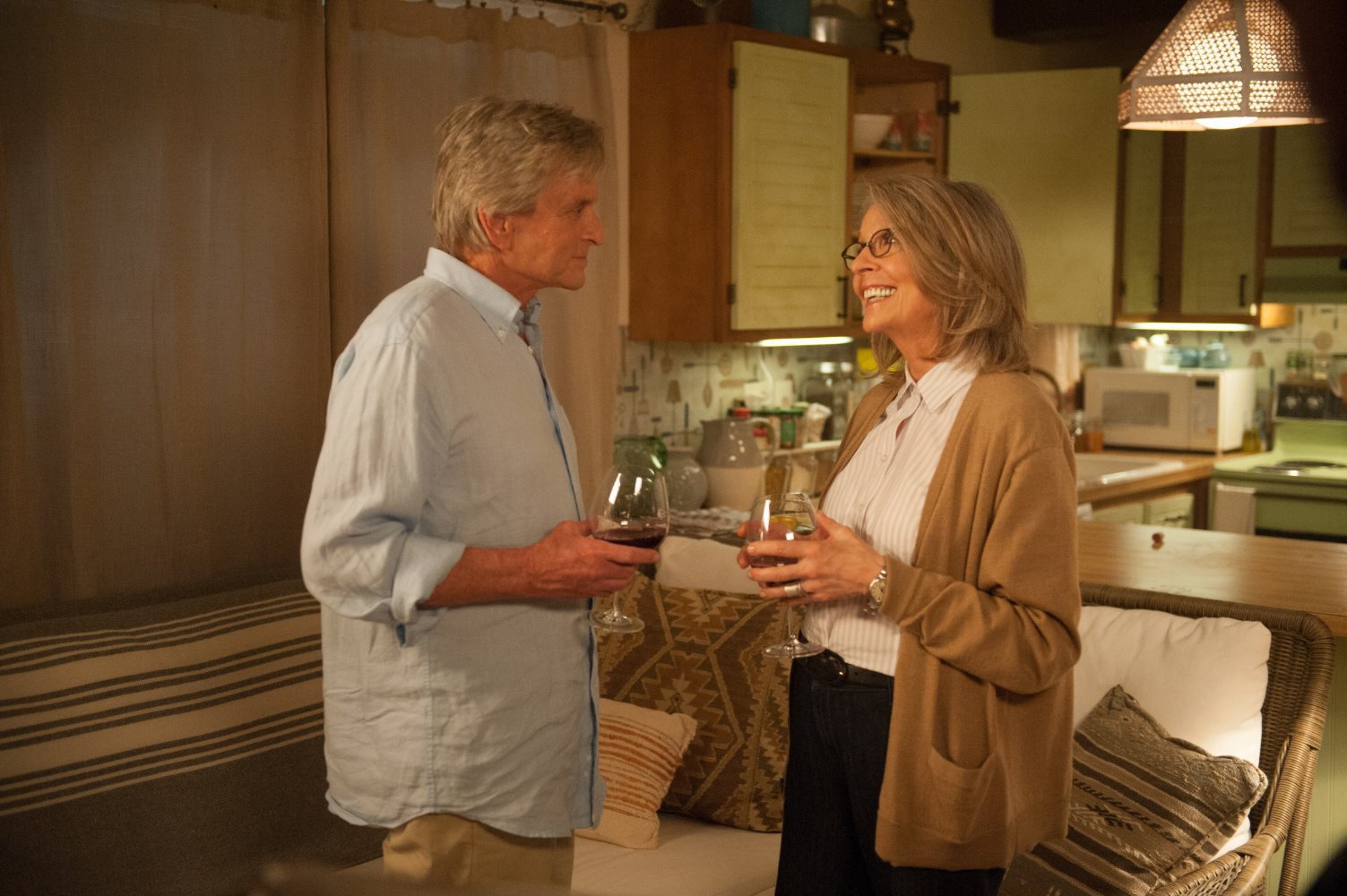And So It Goes
by Hope Madden
Michael Douglas turns 70 this year, and though, in younger years, he carved out some memorable characters, in his final lap he’s really found his niche. No longer dependent on the vain smolder of his unreasonably popular 90s output, the battle-tested pro has settled into a groove playing elderly scoundrels. And So It Goes offers him another opportunity, this time with Oren Little, widowed misanthrope.
Oren falls for lounge singing sweetheart Leah (Diane Keaton), but his abrasive personality and a mind-numbing series of contrivances stand in the way of true love.
Though Keaton simply recycles the same character she’s played with minor variations since 2003’s Something’s Gotta Give, the banter between these two vets is never less than charming.
But let me ask you something…when was the last time Rob Reiner made a good movie? Admittedly, he directed, bar none, cinema’s greatest mockumentary, as well as two of the best Stephen King adaptations on record. His whole Eighties catalog impresses and entertains. A Few Good Men doesn’t suck outright.
After that, meh.
Even Douglas and all his geriatric charisma can’t overcome Reiner’s schmaltz or writer Mark Andrus’s insulting screenplay.
In 1997, Andrus wrote As Good As It Gets, a yarn about a curmudgeonly loner whose heart is warmed by a series of humanizing obstacles and the love of a good woman. In 2014 it’s the same story, different obstacles.
Conflict appears and conveniently disappears as soon as it’s served its purpose. One hollow plot device after another springs up to teach lessons and warm hearts, yet keep the two love birds apart. The lazy scripting is almost as offensive as the way the film casually embraces the stereotype that the elderly are racist. Reiner gives Andrus’s lines an eye rolling “oh those racist scamps” kind of spin that’s beneath the characters these actors are trying so valiantly to create.
The whole team is simply cashing in on the new market for old talent, films like Something’s Gotta Give and Best Exotic Marigold Hotel having proven that there is an audience for late life romances. The great thing about that revelation is that it allows talents like Keaton, Douglas and others the opportunity to lead films.
The unfortunate side effect – one felt in any proven cinematic market – is the soulless cash grab.
Like this movie.









